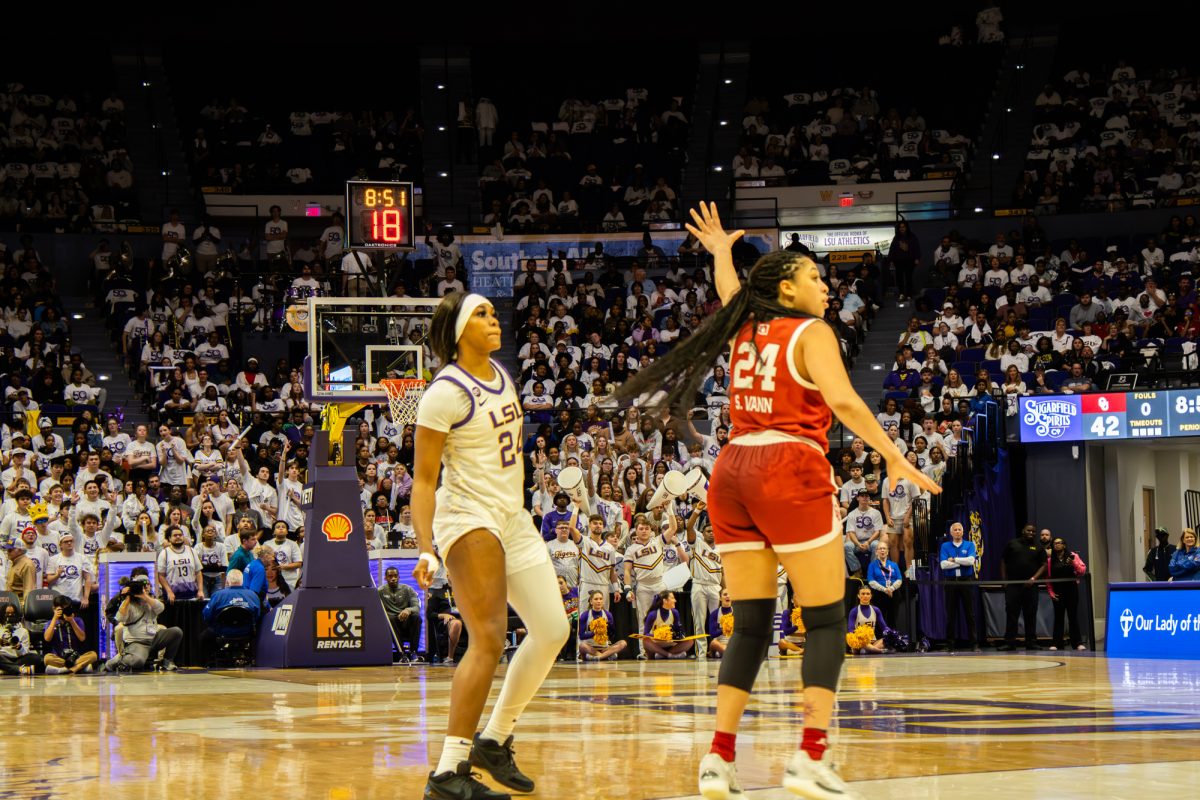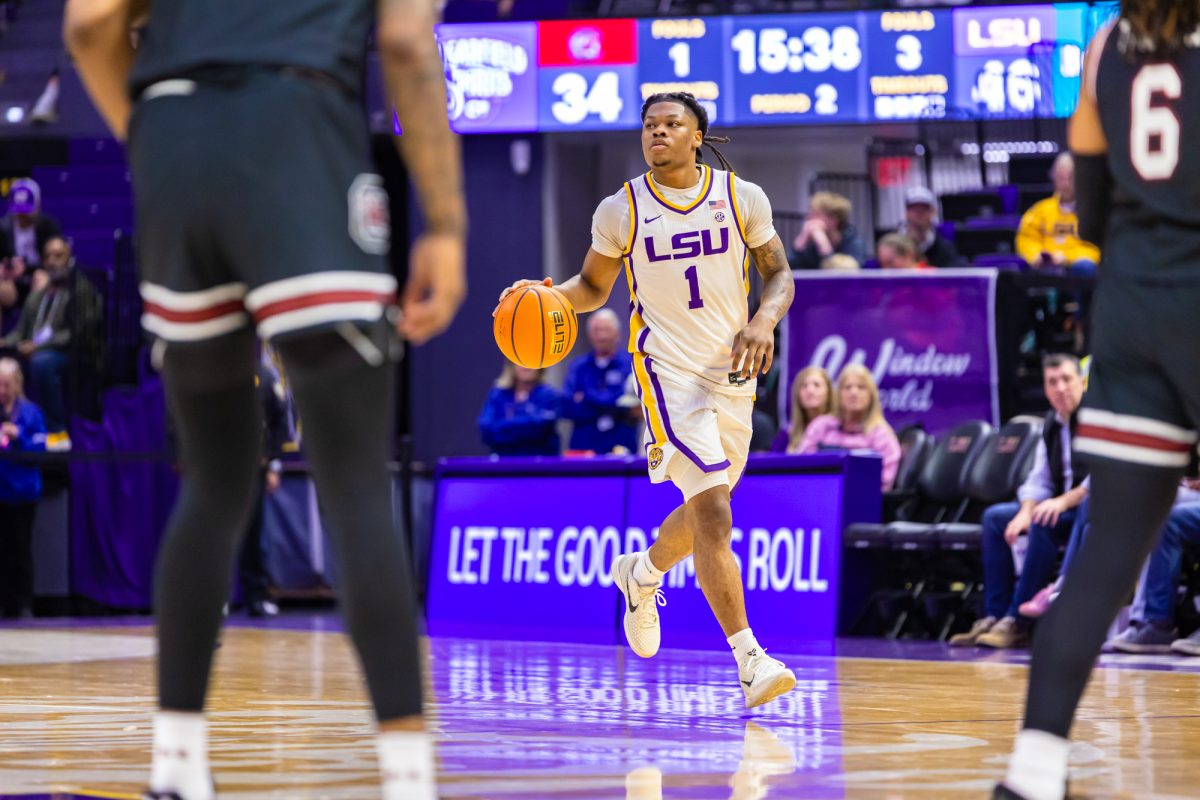Athletic trainers, sports nutritionists, and strength and conditioning coaches may work behind the scenes, but they’re vital aspects to the success of student-athletes.
These core Athletic Department groups collaborate to improve athlete performance, prevent injuries and aid in post-activity recovery.
“It’s a close-knit unit of people that are there to really identify and protect the athlete’s body, mind and even spirit,” said Senior Associate Athletic Trainer and Director of Wellness Shelly Mullenix.
Mullenix said athletic trainers identify illnesses and return athletes to play as soon as possible. The trainers work directly with the injured athletes from the moment the injury takes place until they are returned to health.
Mullenix said a major part of injuries are the psychological aspects.
“[Psychology] is a part of injury, too,” Mullenix said. “They may not be ready to return mentally, which may slow down their process of healing.”
Athletic trainers and strength and conditioning coaches collaborate daily, and they speak with the sports nutritionist twice a week, mainly to keep up with injury reports. If an injury is not severe, athletes are still allowed to work out with the strength and conditioning coaches, but there are modifications to their exercises.
The first thing new men’s basketball strength and conditioning coach Ricky Lefebvre said he did when he arrived in June was get the injury history of the student-athletes. Lefebvre said he did that so he can tailor the training to individual players’ needs.
“My job is to help them become better at their sport and better athletically,” Lefebvre said. “That involves strength training, conditioning, speed, agility, nutrition and recovery.”
Women’s basketball and softball strength and conditioning coach Melissa Moore said the most unknown aspect of her job is how much she impacts the psyche of the student-athletes.
“So many of the things we do help build confidence in the athlete,” Moore said. “So much of [confidence] is instilling discipline, toughness and competitiveness. … There’s no way an athlete is ever gonna win a game if they’re not confident.”
Assistant football and head soccer strength coach Ryan Filo said the essence of being a strength coach is learning how to motivate his players to be successful. Filo said it is fairly easy because strength and conditioning coaches work with their players year-round.
“You have to know what buttons to push and how to motivate your guys,” Filo said. “It’s not just guys coming in here and working out — How do you get 100 percent out of your guys every day when they’re banged up, when they’re sore, when they’re tired, especially when they’re in season playing games?”
Sports Nutrition Coordinator Jamie Mascari focuses on nutrition education as well as sports performance in relation to nutrition. Mascari, who is the nutritionist for the entire Athletic Department, advises on a team and individual basis.
Mascari does team presentations at the beginning of the academic year and allows for individual consulting, whether a student self-refers or is referred by a coach. She also makes handmade trail mix for the athletes, which comes in individual bags with 20 varieties of dried fruits and nuts. Mascari gives the bags fun names including Les Miles’ favorite “Green Grass Grub,” which is filled with pistachios, pumpkin seeds and sunflower seeds.
Mascari makes it fun for student-athletes by showing how their favorite athletes have used good nutrition habits to become successful. Mascari said when she shows the photos of professional athletes at her seminars, something clicks in the minds of the student-athletes.
“A lot of the pros say the positive changes in nutrition have made them a better athlete,” Mascari said. “When our athletes see that, they think maybe eating the right foods does make a big difference.”
Mascari said one of the best things about her job is when students take her advice to make small changes, such as switching from fried to grilled chicken, and they see the difference for themselves on the field.
Mascari said she goes to the grocery store with the student-athletes and shows them how to spend their money wisely, and hosts food demos to teach them how to prepare food on campus.
“I do a lot of grocery tours where the athlete would grab their roommate, we’d go to the grocery and I’d take them through the aisles. Show them ways to incorporate the healthy foods, but also foods that they can buy on budget.”






